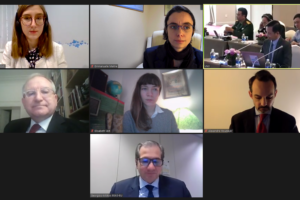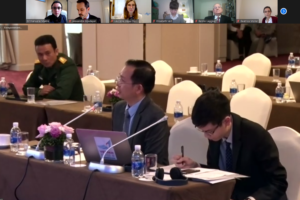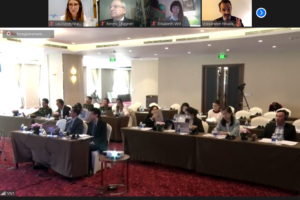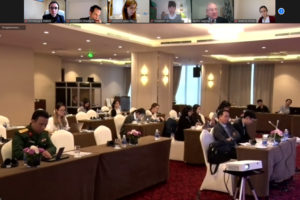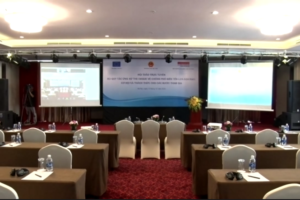Expert Mission on HCoC with Vietnam
10 December 2020
Hybrid
On 10 December 2020, the FRS and representatives from the government of Vietnam discussed over ballistic missile proliferation and the role of the Hague Code of Conduct. This event took the form of a hybrid event with representatives of Vietnam gathering in Hanoi and experts from FRS, the EU, the Swiss Chair and Austria presenting virtually.
This mission was part of a series of targeted national visits.
AGENDA
PRESENTATION & SCOPE OF THE PROJECT
- Alexandre HOUDAYER, Secretary General, FRS
- Georgios KRITIKOS, Deputy Head of Division, Disarmament, Non-proliferation and Arms Export Control, European External Action Service, European Union
I/ KEYNOTE INTRODUCTION – MISSILE PROLIFERATION: A GLOBAL CHALLENGE
-
Emmanuelle MAITRE, Research Fellow, FRS
II/ THE HCoC: A MULTILATERAL INSTRUMENT TO CURB THE PROLIFERATION OF MISSILES
MODERATOR:
- Emmanuelle MAITRE, Research Fellow, FRS
PRESENTERS:
- Benno LAGGNER, Resident Representative to the IAEA, Permanent Representative to the CTBTO PrepCom, Permanent Mission of Switzerland, Vienna, Austria, Current Chair of the HCoC
- Tran Chi THANH, Deputy Director General, Department of International Organizations, Ministry of Foreign Affairs (MOFA), Vietnam
- Elisabeth VEIT, Desk Officer, Department for Disarmament, Arms Control and Non-Proliferation, Austria, Immediate Central Contact/Executive Secretariat HCoC
- Alexandre HOUDAYER, Secretary General, FRS
- Lauriane HEAU, European Projects Manager, FRS
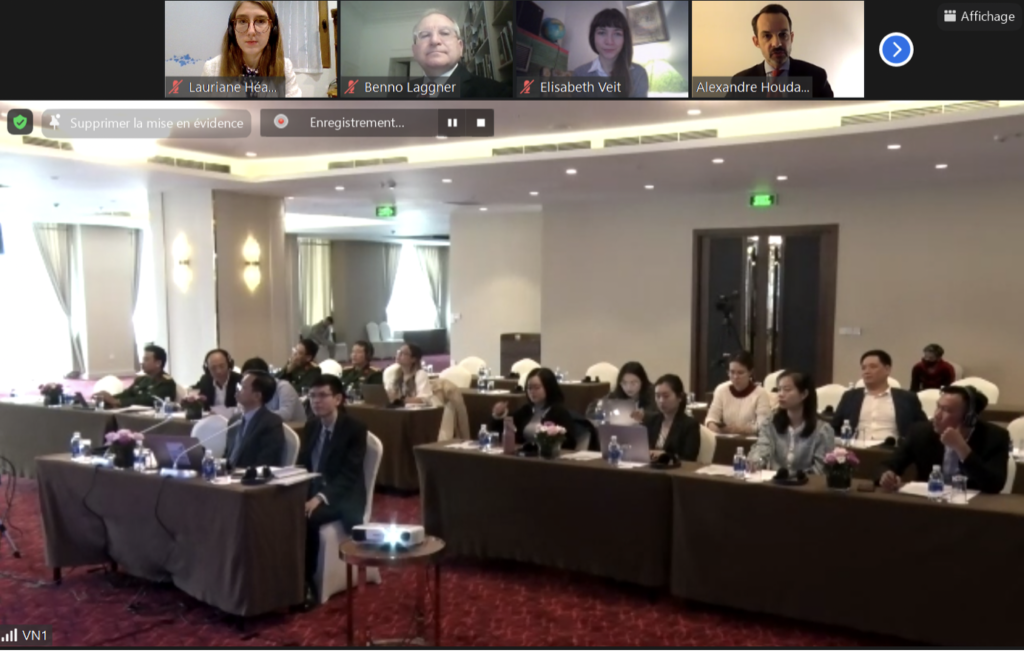
KEY ISSUES:
- Contribution of the Code to international security
- Being a Subscribing State: commitments and benefits
- Day-to-day implementation of the Code
- What opportunities for Vietnam in joining the Code? What constraints?
- Q&A and debate
